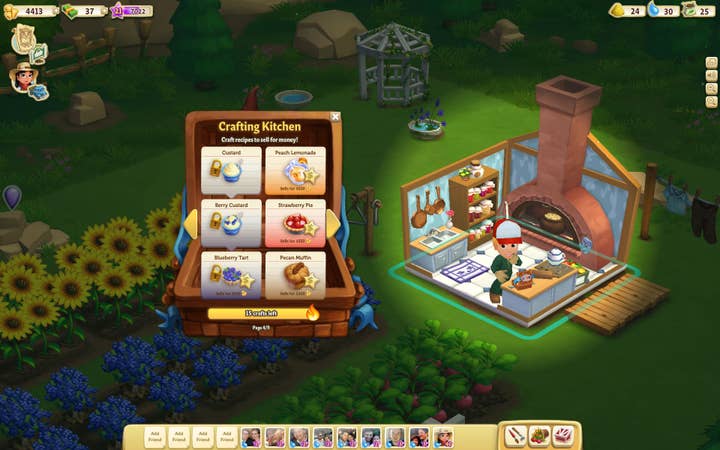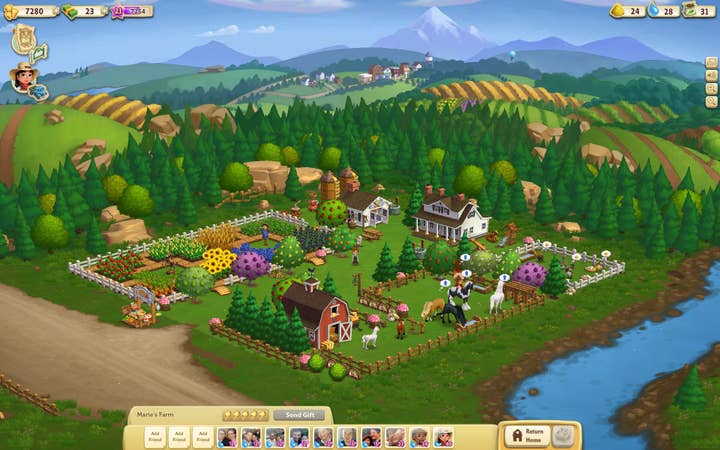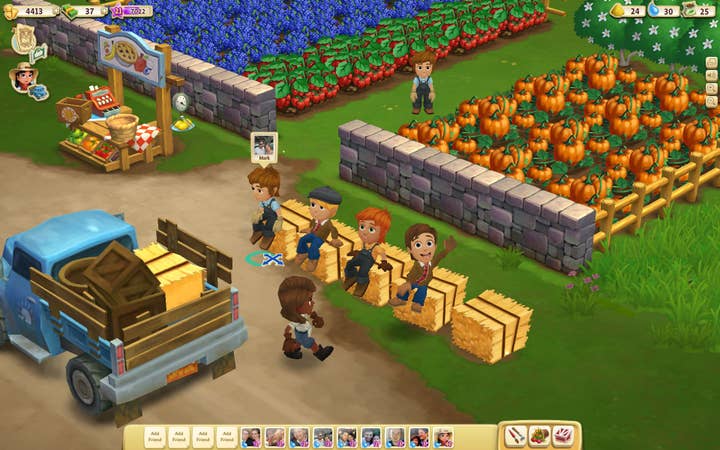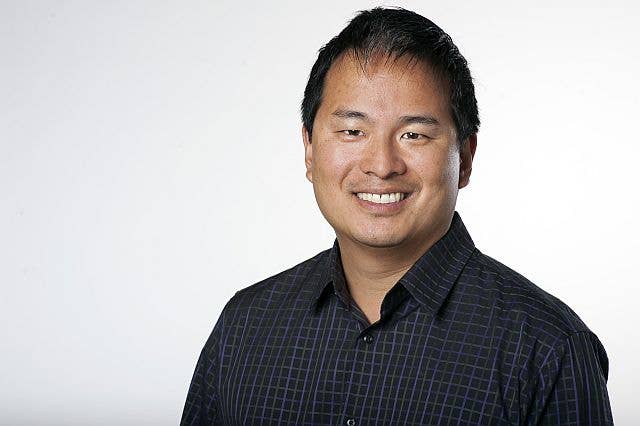Zynga now sees tablets "becoming the ultimate game platform"
Steve Chiang, Zynga's president of games, talks about the "land grab in mobile" and how Zynga is changing its gaming slate
Zynga has had a roller-coaster ride over the last couple of years, soaring high along with Facebook's tremendous growth, only to bottom out not that long after going public. Last year Zynga missed its predictions and its stock was punished, sinking from a high of over $14 to around $2. Many executives left, and the company reorganized, killed under-performing games and shifted its focus more strongly to mobile.
Zynga's last earnings call surprised analysts with a better performance than expected. Other important information from the earnings call included the elimination of over a dozen struggling titles, an improvement of the percentage of revenue coming from mobile games, and overall good earnings despite the shrinkage of the overall player base. Zynga's stock price has rebounded from its low point around $2 and is now flirting with $4. Recent news items have helped this process, including the news that New Jersey is legalizing online gambling and rumors of a Yahoo buyout (which have since been squashed).
Zynga's President of Games, Steve Chiang, was appointed by Mark Pincus to oversee all the games created by the company, including web and mobile games. Unlike many executives in such a role, Chiang began his career as a programmer, working on a Super NES game called WeaponLord. Chiang went on to co-found Tiburon Entertainment, which was later acquired by Electronic Arts and became famous as the studio behind Madden Football. Chiang worked at EA for 15 years, and towards the end of that time was responsible for all product development at EA Sports. Chiang moved to Zynga in 2010, where most recently he led the development of Bubble Safari, ChefVille and FarmVille 2. He spared some time from his busy schedule to speak with GamesIndustry International about Zynga's games, the development process and the future.
We have one of the top casual games in Words With Friends, and Poker Mobile is one of the top casino games. We're also positioned well with 72 million monthly active unique players. In terms of everything else, we're pretty early. The way I describe it is we had our top game makers building Facebook games, and all those games are now starting to finish up. Now they're pivoting to mobile, and we'll start to see some of their games coming out in 2013. We just got out of a product review, and it was a really awe-inspiring product review. We've got a number of really cool titles coming. That's when you'll really see what our mobile's going to look like; a lot of that was started in the middle of last year.
Our goal is really to figure out the player base. One of the first pieces is what's the team inspired by and passionate about. Then how do we build the best experience for that platform, for that audience? That's where it has to start.
Our goal is also to build hits that can become franchises. FarmVille, Poker, Words With Friends are games that we can take to as many platforms as make sense. The trickiness in our business model with free-to-play means you just need a lot of people playing and engaging. With our games wanting to be the most social, and our desire to connect the world through games, you need to have enough density of friends to play otherwise a social game isn't that fun. That's why Facebook is so amazing, because everyone's on Facebook.
"I think tablet's becoming almost the ultimate game platform."
Steve Chiang
I think the tablet's becoming almost the ultimate game platform. I play before I go to bed, and when I wake up, I play on my tablet. Imagine FarmVille 2 on a tablet, you can see the detail on a bigger farm and be able to manipulate things, getting a full experience on a tablet. We announced in the earnings call that FarmVille 2 is coming to mobile, and tablets. I expect a number of our 'Ville games to come to tablets in 2013.
The CityVille team tried to innovate in certain parts of the game and at the end of the day didn't hit on that 'build-the-city-of-your-dreams' fantasy. Whereas FarmVille 2 was much more of a follow of FarmVille 1, with some new mechanics around crafting and watering. It's a hit-driven business, but with great success there are going to be some failures. With FarmVille 2 I think the team really nailed it, and I think it's showing in the daily active uniques.

The monetization of FarmVille 2 is different than FarmVille because of the number of users. Farmville did hit a peak of about 30 million players, and what we've seen since then is user taste moving to mobile, and a lot of our audience has moved on to mobile. Like me, I barely use a PC except at work. Outside of work I'm all handset and tablet. The overall monetization is very, very healthy.
I think the biggest thing that's changed in the overall market is that we're starting to see the Facebook market mature. With any sort of new, emerging market initial users are going to try a lot of stuff, play everything, and as time goes by you get more and more selective. There's really no substitute for a great game. We've got to continue to raise the bar; FarmVille 2 raised the bar for social gaming. Consumer taste continues to change, and we have to continue to be in front of it.
The way we approach gaming at Zynga is first Free - take out the barrier to entry; Accessible - how do we make the first five clicks fun and make you want to click the sixth, seventh and eighth time and then come back tomorrow; and then Social. The reason why we call it midcore is there's a hardcore gaming audience, and that's not really our target. We don't want a small number of players. We're trying to capture all the depth and the visuals and the mechanics of a more core game, but make it simpler to play in shorter sessions.
One of the reasons I left my console job is that at some point I didn't have an hour every day to play a game of Madden. It didn't fit my time schedule. So this idea of a five or ten minute session between meetings, after meetings, and then connecting with my friends, or seeing grandparents playing with grandkids in the same game, enjoying this 9 to 90 audience you can really appeal to, was awe-inspiring. It really changed the game, kind of like the Wii did for consoles.
I don't know what we're going to be able to achieve with midcore, but certainly our goal is to expand the audience. I think about myself as a lapsed World of Warcraft player; I was playing three hours a night and I couldn't get enough. But if I can consume an experience like that in a much shorter session, I'm back in. It's just a matter of time.
"I think the biggest thing that's changed in the overall market is that we're starting to see the Facebook market mature"
Steve Chiang
Absolutely, but at the end of the day it's game development. Probably more times than you'd like, things take a little longer than you'd expect, which then puts games on top of each other. It happens. We do our best to plan it out; we're getting more and more disciplined in our approach, and more and more consistent in hitting the dates we set out to hit. There's always the unforeseen. If we have the fortune of having multiple games at one time, we'd want to pace it out. We want to give each game the maximum chance to succeed and find its audience. It's a high-quality problem to have; that's the good news.
We're really focusing on fewer, better. Our goal is to drive hits, games that have franchise potential. When I talk about franchises, it's something you'd want to make the sequel to: FarmVille, FarmVille 2, games that we want to continue to iterate on. Not every game we make is going to be a hit, but certainly that's our goal.
When I took over a bunch of games in last June or July, we killed more games in the back half of the year than we did in the first half of the year. The games were just off-strategy or not tracking as well as we wanted them to track. We've done a good job since then of really cleaning up our overall slate plan, to get to fewer, more focused, stronger games. That will ultimately lead to a better hit ratio.

One of the other reasons why I came to Zynga is that when I first got to Zynga we were serving over 70 million players a day. We're downloading all the clients, so basically there's 70 million downloads of your game, and they're hitting our servers. Coming from a console background, that's mostly a client side business; only recently has online started to take off.
One of Zynga's strengths is we are coming from a web background. Our CTO Cadir told me Zynga is solving problems that Facebook, Google and Netflix are solving. We're on the cutting edge of all the various scaling technologies to make it so we can serve sixty and seventy million players a day. We've taken that tech stack and built it into something called ExampleVille, which allows a game team to build Ville games using a common back-end. We have our own zCloud, and we get more game instances per server than the competition. With FarmVille 2 we built a new technology called Greyhound, which uses less servers and still maintains that client-server security.
We meet with a lot of ex-console guys building new companies, and one of the things I tell them is you've got to understand that you're coming from a console business that's mostly client, and free-to-play is all client-server. You need to partner with teams that can provide what you don't have. There's a strong value proposition in what we can provide.
Oh, absolutely. This industry is so early. That was the other reason to make the move to social, is just that everything's moving so fast. I played games in the '90s, and you could see the evolution of PC gaming with city building, and god games, and the Monkey Islands of the world. That kind of all happened on Facebook. It's sort of the same thing on mobile. Ideas that were maybe old that resonated still have heat. We were able to bring back a game called Slingo, which was a huge game on America Online back in the dialup days, and we brought it back to Facebook and it was very successful for us. That's the value of a franchise or a brand; it certainly worked with console gaming.
That's the macro we're on as a company. Long-term, we want Zynga to equal play. I was talking to the guy in our China office, and I was saying that search is the most used thing on the Internet, and gaming could be number two. He said, "In China gaming is number one and search is number two." That's a culture of gaming through and through.
"Right now there's a land grab in mobile, and everybody's getting in"
Steve Chiang
People confuse simplicity for not a good game. People look at the original FarmVille and say it's not much of a game. If you look at what we've done with FarmVille over time, and the crafting, and the mechanics that have been added to that, our players love it. It's on its ninth major expansion now.

I think things will start to mature. Right now there's a land grab in mobile, and everybody's getting in. Over time we'll start to see better and better experiences, and we'll start to see brands mean more, because there's too many choices. It becomes like picking shoes in a store; are you getting Nike or Adidas? At some point you'll just be more loyal to one brand than the other, and that's the game you're going to try. We really want to establish Zynga with game quality for our players. As we do that, if every game continues to build on that, we'll build trust with our players. They'll know that they're going to get a free experience, it's going to be high quality, I can have fun with my friends. That's the consistent place we want to continue to go, and we're really lining up our game slates around creating hits and franchises and continuing to build value in the network of players and the user experience.
It's this golden time of gaming. I think we say that at different times, at different cycles, but with the ubiquity of mobile and the constant connection there's going to be so many different experiences. With touch, there are very different types of games and experiences as gamers that we haven't seen. I think that's more fun than seeing the tenth version of another game.









